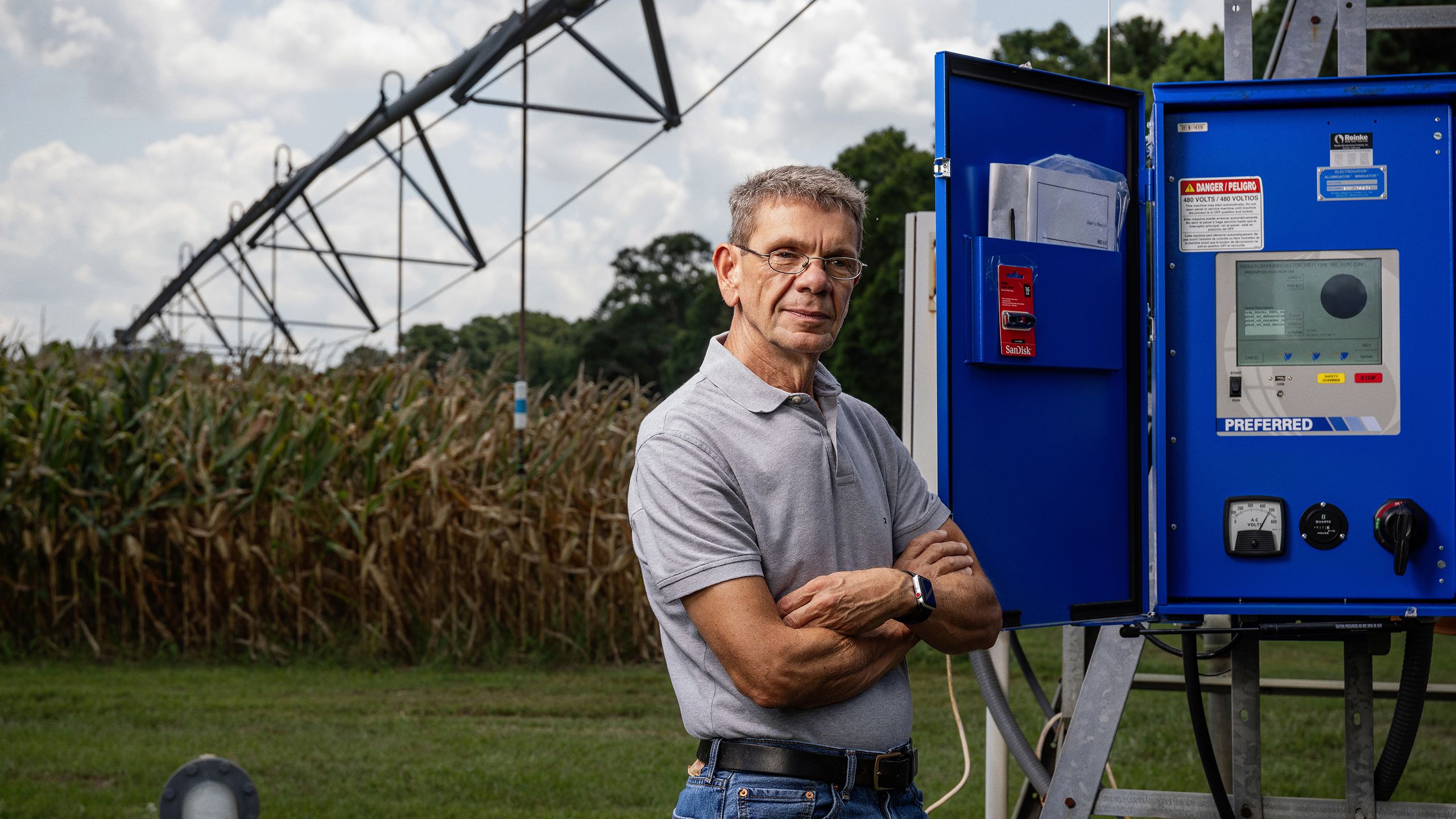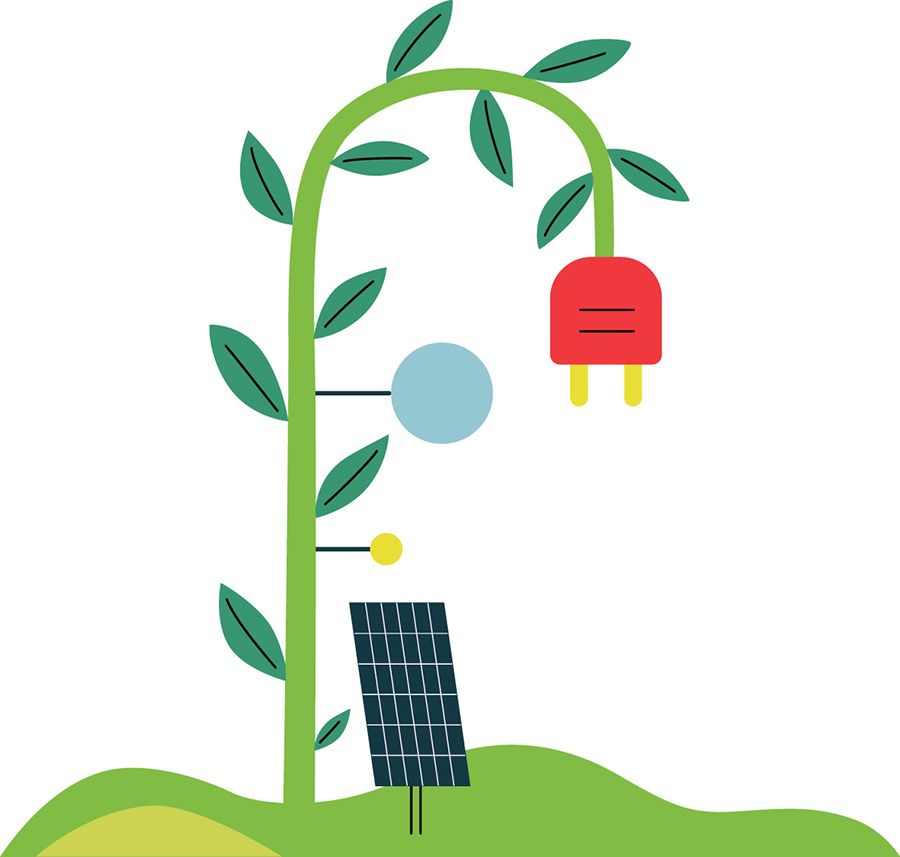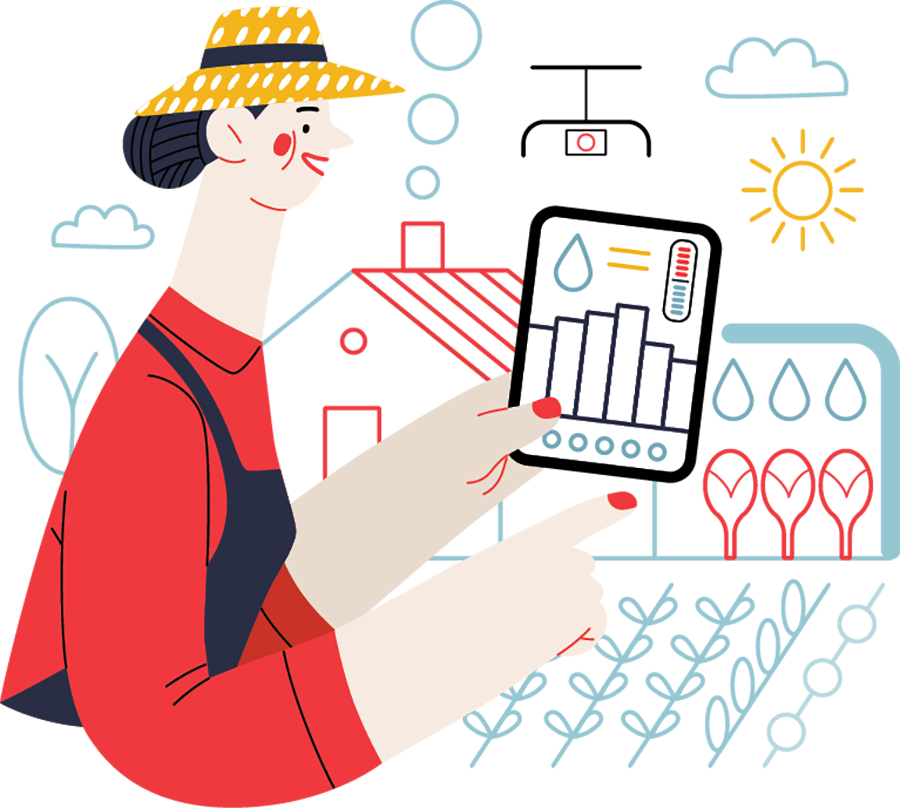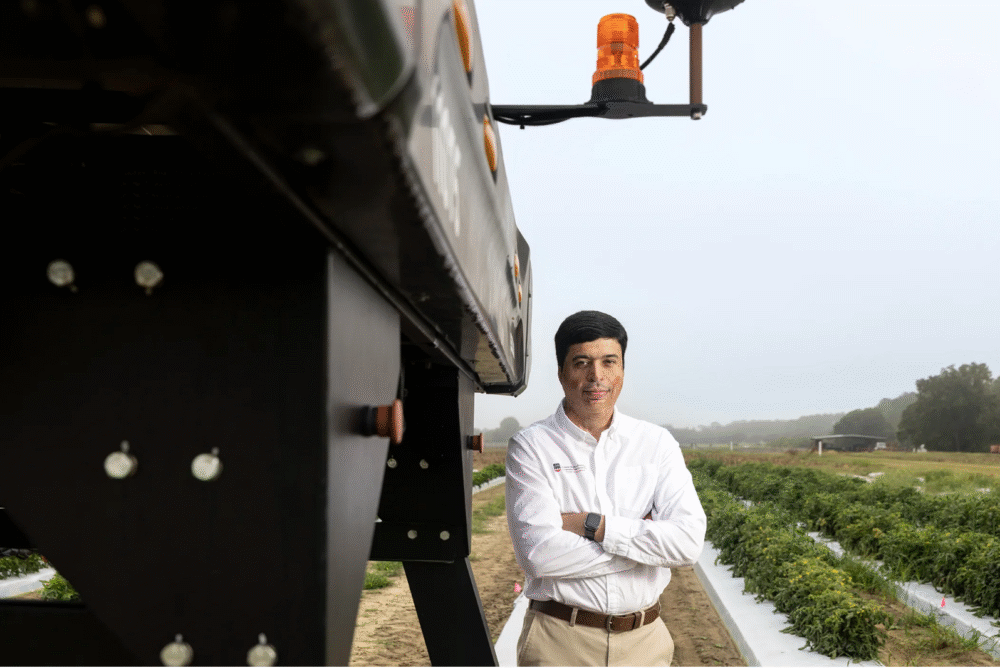Tech-driven,
farmer-focused
Inside UGA’s push for precision agriculture innovation
By Maria M. Lameiras

With more than 70 faculty members from multiple disciplines, the University of Georgia’s Institute for Integrative Precision Agriculture (IIPA) has laid the foundation for an international research enterprise designed to harness advancing technology to address agricultural challenges in a rapidly changing world.
“One of the challenges now is marshaling all of these great faculty who want to be a part of this institute into high-performing teams,” said George Vellidis, University professor in the Department of Crop and Soil Sciences at the College of Agricultural and Environmental Sciences, who was named the first director of the IIPA in November 2024.
Seed grants cultivate collaborative innovation
In 2023 and 2024, IIPA funded several interdisciplinary seed grants to accelerate the team-building process. Teams formed through those seed grants have submitted several external grant proposals, including for researching artificial intelligence-enhanced imaging for detection of chicken eggs; enabling smart farming through interconnected infrastructure systems; using AI to improve forestry management and logistics; automating nursery production operations; and creating a prediction model for breeding tastier roasted peanuts.
“There is a core group of faculty who is really invested in the idea of this institute, who is actively working together as a result of the seed grants,” Vellidis said. “The next step is developing a strategic plan, creating governance rules for the institute, and making decisions about what kind of academic programs we want to offer.”
Building space for breakthroughs
New facilities have been funded, with plans for 11,000 square feet of office and lab space in the former poultry science building on UGA’s South Campus in Athens, a demonstration lab on the UGA Tifton campus, and innovation space at UGA Grand Farm.
Harnessing the highly interdisciplinary nature of the faculty in the IIPA to focus on agricultural issues will be a growth process for experts whose backgrounds have not traditionally included agriculture.
“Technology is becoming a part of everything, including agriculture. It just makes sense that emerging technologies will become increasingly important to agriculture,” Vellidis explained. “Let’s say my specialty is computer vision, but I don’t work in agriculture. Agriculture can still be a place where I can apply computer vision."
"We are working toward that shift in thinking about research and about how IIPA members who don’t usually apply their work to the agricultural domain can bring that expertise to bear in agriculture, so we can accelerate innovation and adoption in this industry.”
As precision agriculture continues to evolve, educating a workforce for a technology-focused agriculture industry is another goal.
“Precision agriculture has the potential to help with economic development in the rural parts of the state, because that’s where the agriculture is,” Vellidis said. “If farmers are using precision agriculture technologies, then there are going to be companies that sell technology, and those companies will need educated people to be service providers and data analysts.”
Preparing future leaders in the evolution of precision agriculture is critical to increased efficiency, sustainability and productivity for farmers worldwide.
“Precision agriculture companies are struggling to hire people because there aren’t enough people with expertise. We are expanding the opportunities for students and researchers to improve our ability to deliver precision agriculture solutions to our farmers.”
Driving change with smart tools
Vellidis sees automation as a key driver of agricultural innovation. With the rise of self-driving tractors, dronebased monitoring and automated irrigation, farming’s future is increasingly defined by technological integration and sustainability. The integration of machine learning and artificial intelligence has further enhanced decision making capabilities in farming.
“AI-driven tools allow for real-time analysis of vast amounts of data, helping farmers make data-driven decisions more efficiently than ever before,” said Vellidis, adding that these technologies improve yields while reducing resource waste. “Farmers are beginning to see the power of data and, as technology advances, it becomes easier to integrate these insights into daily operations. IIPA will take a leading role in delivering this knowledge to farmers through the UGA Cooperative Extension system.”





